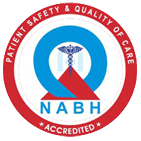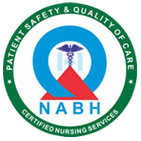FOLLOW THE MISSION HOSPITAL




Childhood attention deficit-hyperactivity disorder (ADHD) is diagnosed after a child has shown six or more specific symptoms of inactivity and/or hyperactivity on a regular basis for more than six months in more than two settings. There is no single test for ADHD.
If your child has been diagnosed with ADHD, he or she will likely be under the care of a team of health professionals. These professionals should have extensive experience treating ADHD, and should communicate with each other (and with you) on a regular basis about your child’s care.
A doctor can diagnose ADHD with the help of standard guidelines from the American Academy of Pediatrics. The diagnosis of ADHD involves the gathering of information from several sources, including school staff, caregivers, and parents. The doctor will consider how a child's behavior compares with that of other children the same age.
The diagnosis of ADHD will probably be made by a pediatric psychologist or doctor –a pediatrician, psychiatrist, or neurologist (a specialist in diseases of nervous system). Other members of the team might include nurses, nurse practitioners, physician assistants, social workers, and other therapists (counselors, family therapists, etc)
In addition, the doctor will do a physical examination. A full medical history will screen for other conditions that might affect a child's behavior. Among the possible causes of ADHD-like behavior are:
The medical history also will help put a child's behavior in context. In addition, sharing the family history can offer important clues about a child's condition. The doctor will ask what symptoms a child is showing, how long the symptoms have occurred, and how the behavior affects a child and his/her family.
Doctors might classify symptoms as the following types of ADHD:
A class of drugs called psychostimulants appears to be the most effective treatment for childhood ADHD. These medicines, including methylphenidate (Ritalin®, Concerta®, Focalin XR®, Ritalin LA®, Daytrana® ), Metadate CD, and dextroamphetamine (Adderall XR®, Vyvanse®), help children to focus their thoughts and ignore distractions. Stimulant medicines are effective in 70% to 80% of patients. Non-stimulant medicines include atomoxetine (Strattera®), Intuniv®, and Kapvay®. They are often used as adjunct therapy or can be used independently.
ADHD medicines are available in short-acting (immediate-release), intermediate-acting, and long-acting forms. It might take some time for a doctor to find the best medicine, dosage, and schedule for an individual with ADHD. ADHD drugs sometimes have side effects, but these tend to happen early in treatment. Usually, side effects are mild and short-lived.
Behavior therapy is an alternative treatment pursued by the significant number of patients who do not respond to stimulants or are reluctant to take the drugs. Many patients also supplement their drug treatment with some kind of behavior therapy. The evidence for behavior therapy’s effectiveness is much weaker than the evidence for stimulant medications, however, and almost all studies comparing behavior therapy with stimulants alone indicate a much stronger effect from stimulants than from behavior therapy. Behavior therapy is not without some supporting data, although few high quality studies of the treatment exist.
Research shows that behavior therapy can be particularly good for certain subgroups within ADHD patients, for example, children who have poor relationships with parents or lots of opposition and aggression in the family. ADHD is a unique chronic disorder that might also be treated in some cases with educational therapy, although very little information exists on such treatment.
Children with ADHD might need help in organizing. Therefore, it is a good idea to do the following:
Children with ADHD need consistent rules that they can understand and follow. If children follow rules, they should be rewarded. Children with ADHD often receive, and expect, criticism. Children’s good behavior should be sought out and praised.
Alternative treatments for ADHD include allergy treatment, megavitamins, biofeedback, restricted diets, anti-motion sickness treatment, and eye training. Currently, there is no strong scientific evidence to support the efficacy of these alternative treatments for ADHD. Consumers should exercise caution when considering alternative treatments.
One alternative ADHD treatment, Brain Gym®, is said to develop the brain's neural (related to the nervous system) pathways through movement. It is meant to prepare students of all ages to practice and master the skills required for the mechanics of learning. Though this strategy might be effective, scientific research has not yet substantiated its effectiveness.
Parents can help a child with ADHD achieve academic success by taking steps to improve the quality of the child’s homework. Parents should make sure that a child with ADHD is:
Children with ADHD need consistent rules that they can understand and follow. If children follow rules, they should be rewarded. Children with ADHD often receive, and expect, criticism. Children’s good behavior should be sought out and praised. Parents should:
Teens with ADHD may demonstrate good knowledge of driving rules, but applying these rules is a different matter. Rather than rule-of-the-road knowledge, it is poor driving performance that distinguishes individuals with ADHD from their peers. Learning new skills may be difficult. Patience, supervision, and time are necessary to develop perception, good judgment, and reaction skills through practice behind the wheel. Talk with your teen to see how he feels about driving. Increased responsibility and attention to new stimuli may be overwhelming.
Teen driving privileges should be discussed in light of the overall ADHD treatment plan. It is a parent's responsibility to establish rules and expectations for safe driving behaviors.
With simple adjustments in the classroom, teachers can more easily work with the strengths and weaknesses of the child with ADHD.
It is helpful for teachers to:
Not all children with ADHD have trouble getting along with others. For those who do, however, steps can be taken to improve a child’s relationships. The earlier a child's difficulties with peers are noticed, the more successful such steps might be. It is helpful for parents to:

A Unit Of Durgapur Medical Centre Pvt. Ltd.